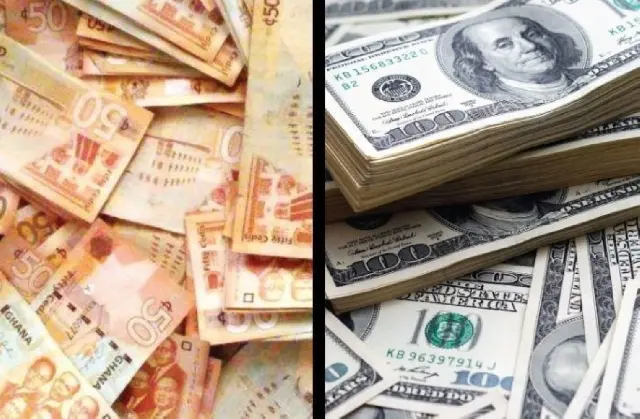Accusations abound concerning the recent dip in oil prices and the concurrent rise in the Ghana Cedi’s value, with some attributing these shifts solely to government intervention. However, as Mr. Prince Ellis Antsroe, CEO of Swift Petrotrade Group, elucidates, broader market forces are undeniably at play. He points to crude oil backwardation, a phenomenon wherein future prices are lower than spot prices, as a key driver impacting global and local markets, especially Ghana. Understanding this condition, coupled with other economic factors, provides a more nuanced perspective on both oil price fluctuations and the Cedi’s performance. Mr. Antsroe contends that assertions attributing these economic changes exclusively to the current administration’s policies are overly simplistic and, in many ways, inaccurate.
To comprehend the current dynamics, it’s crucial to differentiate between contango and backwardation. Contango arises when future prices exceed spot prices, incentivizing traders to purchase and store oil in anticipation of future profits. Conversely, crude oil backwardation occurs when future prices fall below spot prices, discouraging storage and prompting immediate sales. Mr. Antsroe explains this further: Contango, he notes, is indicative of rising prices and encourages stockpiling. Crude oil backwardation, on the other hand, signals falling prices, leading to decreased storage and prompt sales. This dynamic has a direct impact on the dollar, with contango increasing dollar demand as traders accumulate oil, and backwardation decreasing demand as they sell off reserves.
Currently, the international oil market is experiencing backwardation. Crude oil prices have seen a substantial decline, falling from approximately $80 per barrel in January 2025 to around $60 per barrel in May 2025, with potential forecasts suggesting a further descent to $40 per barrel. Mr. Antsroe emphasized, "Currently, the international oil market is in backwardation! Crude oil is selling on average for around $60 per barrel. In December 2024, the average price was more than $75 per barrel. In January this year, the average price was hovering around $80 per barrel. That records about a 25% reduction in the crude oil price just between January 2025 and May 2025." This price decline is attributed to a combination of factors, including trade wars, economic uncertainty dampening demand, and increased oil production by OPEC+, exacerbating the existing surplus.
The Organization of the Petroleum Exporting Countries (OPEC) is a permanent, intergovernmental organization established in 1960 with the aim of coordinating petroleum policies among its member states. In 2016, OPEC+ was formed, an agreement that extends this coordination to include non-OPEC oil-exporting countries, with the intention to manage production levels. Key members, including Russia, Azerbaijan, and Kazakhstan, collectively control a staggering 82% of the world’s proven oil reserves. Mr. Antsroe, referencing OPEC’s official documentation, notes the organization’s primary objectives: coordinating petroleum policies, securing fair and stable prices for producers, ensuring an efficient and regular supply to consumers, and creating a fair return on capital investments. With its expanded membership and control over substantial oil reserves, OPEC+ wields even greater influence on the global oil market than OPEC alone.
The falling petroleum prices in Ghana reflect the broader global trends, given the nation’s 97% reliance on imports. As global prices decline, these savings are naturally passed on to local consumers. Furthermore, the weakening of the dollar against the Cedi contributes to reduced import costs, impacting pump prices. Landed costs, which include the product cost, insurance, freight, duties, and other fees, are predominantly quoted in US dollars. The prevailing exchange rate at the time of each transaction directly determines the final cost in Ghana Cedis. Mr. Antsroe is firm on this point: "I want to indicate unequivocally that the current dropping of petroleum prices at the pump in Ghana is not as a result of any special or extraordinary measures put in place by the President Mahama-led administration." Ghana operates under a price deregulation system, where market forces of demand and supply dictate oil prices.
Mr. Antsroe challenges the notion that the Cedi’s recent performance is solely attributable to specific government strategies. He highlights that the Cedi also demonstrated strength in 2020, under different leadership, driven in part by an oversubscribed Eurobond. The phenomenon of crude oil backwardation, in particular, drives funds toward other commodities, such as gold and cocoa, benefiting Ghana’s economy. Gold prices have risen significantly in response to crude oil backwardation, boosting Ghana’s export revenue. Mr. Antsroe states, "Backwardation in the international crude oil market generally increases demand exponentially for both gold and cocoa…leading to very high prices." The domestic gold purchase program has further augmented Ghana’s gold exports.
Several factors are bolstering the Ghana Cedi. The recent IMF agreement is expected to release $370 million, increasing the supply of dollars in the market. Additionally, the Bank of Ghana injected $490 million into the foreign exchange market in April 2025. High remittance inflows from abroad are also contributing to the increased dollar supply. Overall, Ghana is experiencing a surplus of dollars, leading to a decline in the dollar’s value relative to the Cedi. Addressing counterarguments, Mr. Antsroe explains that the Cedi’s favorable performance against the British Pound and Euro is linked to the shift in the commodity market and the EU/UK’s limited domestic production of gold and cocoa.
In summary, the complex interplay of global market dynamics, specifically crude oil backwardation, is a primary driver behind the drop in oil prices and the strengthening of the Ghana Cedi, rather than solely the result of governmental policies. Ghana’s elevated revenue from gold and cocoa exports, spurred by this market condition, coupled with IMF agreements and remittance inflows, are significant factors in the Cedi’s current strength. This analysis, informed by the expertise of Mr. Prince Ellis Antsroe, offers a comprehensive perspective on these multifaceted dynamics. For those seeking a deeper understanding, continued monitoring of industry news and reports is essential to stay informed about these constantly evolving market forces.
Disclaimer: This analysis is based on the information provided and should not be considered financial advice. Consult with a financial expert for personalized guidance.
About the Author: Mr. Prince Ellis Antsroe is the Chief Executive Officer of the Swift Petrotrade Group (SPG) and a seasoned expert in the oil and gas industry with extensive qualifications and memberships in international energy organizations.
Image Source: MYJOYONLINE




















